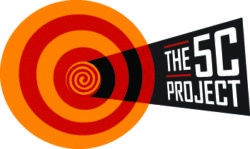Venerable Marx, if you lived in these lands
You would be quickly clean shaven and sent to a school for re-education.
“A Drinking Binge With Carl Marx”, a poem by Mircea Dinescu

I have been to several film festivals around the Balkans but none of them dares to be as honest, freehearted and bohemian as Divan Film Festival. And to admit so openly that the art consumption with positive income in this region is unthinkable without the presence of good food. After only four days spent in the Portul Cultural complex, one would voluntarily ask to ¨be quickly clean shaven and sent to a school for re-education¨ as the free spirit of the place makes it difficult to go back safely to the pragmatic world (although Dinescu´s verse was meant in a completely different sense). Juxtaposed to the timelessness at Divan, the mundanity of outside reality eventually hurts.
The festival takes place at the Romanian village of Cetate which is located in an approximate range of 250-300 km from Sofia, Bucharest and Belgrade and twenty kilometers from the bridge New Europe, formerly known as the Danube Bridge 2. This is already a sufficient prerequisite to locate it within the Balkans.
In late nineteenth century the small port served for agricultural exports. Later during the socialist period it was used as a frontier check point but also for exporting grain mainly to USSR. Then it got abandoned until 1996 when appears Mircea Dinescu and buys the main administrative building of the port at an auction in order to convert it into a cultural center with a hotel complex, restaurant and winery. Who is Mircea Dinescu? A poet, writer, satirist and dissident during Ceausescu´s times, today is also a TV star, chef and successful businessman. By hosting the Divan Film festival since, Dinescu actually awarded himself with the privilege to have a private film festival in his backyard.
And while Dinescu and his team are taking excellent care of the delicacies and the wine on the table, the artistic director Marian Tutui is busy to satisfy the aesthetic needs of the festival guests and he does it with all his love and professional expertise. Apart from screening every evening a Balkan feature film debating a key topic for the region such as Parade by Srđan Dragojević and Death in Sarajevo by Danis Tanović, during the 2016 edition Marian managed to provide an extensive insight towards the contemporary Romanian production, especially the short film scene which is not easy to follow outside of the region. However, my personal and very important catch-up was the screening of Cristian Nemescu´s last completed mid-length film from 2006 Marilena from P7 revealing details from the suburban life in Bucharest through a minimalist narrative.
As usually, the festival highlight for film professionals is the three day conference on a topic related to Balkan film which invites theoreticians, researchers and film critics to participate by providing a relevant input. This year´s conference title was ¨Urban Life in the Balkans¨ and the 5C Project was also given the opportunity to take part in the discussion with papers presented among acclaimed film specialists. All texts will be published in a special bilingual Romanian-English edition and I am particualry proud that my modest research “Sofia in Film: A City Non Grata” will find place in the book too.
The 5C program offered as well two masterclasses. “Film Criticism: The Digital Age” by the renown Romanian film critic Dana Duma who discussed the nowadays manifestations of criticism by using the means of digital media. The Serbian editor and university professor Aleksandra Milovanović´s masterclass “In/Outside the Editing Room” demonstrated the importance of editing in film storytelling and highlighted the key aspects that a film critic should be familiar with. It was a lecture that would rarely happen within the academic setting of film studies programs as it provided a rather practical than theoretical point of view.
Our meditative experience at Divan Film Festival in Cetate flew rapidly as a sweet dream and we headed on a sobering trip to Belgrade via the narrow, bumpy but picturesque roads of the Eastern part of Serbia. With the improvised music of the Cetatean trumpet orchestra Mambo Siria in the head, the transition to city life at least went smoother.
